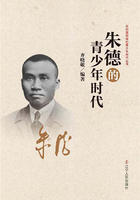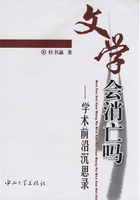Her malicious cousin, Bussy-Rabutin, who was piqued by her indifference, and basely wished to avenge himself, said that her "warmth was in her intellect;" that for a woman of quality she was too badine, too economical, too keenly alive to her own interests; that she made too much account of a few trifling words from the queen, and was too evidently flattered when the king danced with her. This opinion of a vain and jealous man is not entitled to great consideration, especially when we recall that he had already spoken of her as "the delight of mankind,:" and said that antiquity would have dressed altars for her and she would "surely have been goddess of something." The most incomprehensible page in her history is her complaisance towards the persistent impertinences of this perfidious friend. The only solution of it seems to lie in the strength of family ties, and in her unwillingness to be on bad terms with one of her very few near relatives. Bussy-Rabutin was handsome, witty, brilliant, a bel esprit, a member of the Academie Francaise, and very much in love with his charming cousin, who clearly appreciated his talents, if not his character. "You are the fagot of my intellect," she says to him; but she forbids him to talk of love.
Unfortunately for himself, his vanity got the better of his discretion. He wrote the "Histoire Amoureuse des Gauls," and raised such a storm about his head by his attack upon many fair reputations, that, after a few months of lonely meditation in the Bastille, he was exiled from Paris for seventeen years. Long afterwards he repented the unkind blow he had given to Mme. de Sevigne, confessed its injustice, apologized, and made his peace.
But the world is less forgiving, and wastes little sympathy upon the base but clever and ambitious man who was doomed to wear his restless life away in the uncongenial solitude of his chateau.
Among the numerous adorers of Mme. de Sevigne were the Prince de Conti, the witty Comte de Lude, the poet Segrais, Fouquet, and Turenne. Her friendship for the last two seems to have been the most lively and permanent. We owe to her sympathetic pen the best account of the death of Turenne. Her devotion to the interests of Fouquet and his family lasted though the many years of imprisonment that ended only with his life. There was nothing of the spirit of the courtier in her generous affection for the friends who were out of favor. The loyalty of her character was notably displayed in her unwavering attachment to Cardinal de Retz, during his long period of exile and misfortune, after the Fronde.
But one must go outside the ordinary channels to find the veritable romance of Mme. de Sevigne's life. Her sensibility lent itself with great facility to impressions, and her gracious manners, her amiable character, her inexhaustible fund of gaiety could not fail to bring her a host of admirers. She had doubtless a vein of harmless coquetry, but it was little more than the natural and variable grace of a frank and sympathetic woman who likes to please, and who scatters about her the flowers of a rich mind and heart, without taking violent passions too seriously, if, indeed, she heeds them at all. Friendship, too, has its shades, its subtleties, its half-perceptible and quite unconscious coquetries. But the supreme passion of Mme. de Sevigne was her love for her daughter. It was the exaltation of her mystical grandmother, in another form. "To love as I love you makes all other friendships frivolous," she writes. Whatever her gifts and attractions may have been, she is known to the world mainly through this affection and the letters which have immortalized it. Nowhere in literature has maternal love found such complete and perfect expression. Nowhere do we find a character so clearly self-revealed. Others have professed to unveil their innermost lives, but there is always a suspicion of posing in deliberate revelations. Mme. De Sevigne has portrayed herself unconsciously. It is the experience of yesterday, the thought of today, the hope of tomorrow, the love that is at once the joy and sorrow of all the days, that are woven into a thousand varying but living forms. One naturally seeks in the character of the daughter a key to the absorbing sentiment which is the inspiration and soul of these letters; but one does not find it there. More beautiful than her mother, more learned, more accomplished, she lacked her sympathetic charm. Cold, reserved, timid, and haughty, without vivacity and apparently without fine sensibility, she was much admired but little loved by the world in which she lived. "When you choose, you are adorable," wrote her mother; but evidently she did not always so choose. Bussy-Rabutin says of her, "This woman has esprit, but it is esprit soured and of insupportable egotism. She will make as many enemies as her mother makes friends and adorers." He did not like her, and one must again take his opinion with reserve; but she says of herself that she is "of a temperament little communicative." In her mature life she naively writes: "At first people thought me amiable enough, but when they knew me better they loved me no more." "The prettiest girl in France," whose beauty was expected to "set the world on fire," created a mild sensation at court; was noticed by the king, who danced with her, received her share of adulation, and finally became the third wife of the Comte de Grignan, who carried her off to Provence, to the lasting grief of her adoring mother, and to the great advantage of posterity, which owes to this fact the series of incomparable letters that made the fame of their writer, and threw so direct and vivid a light upon an entire generation.















